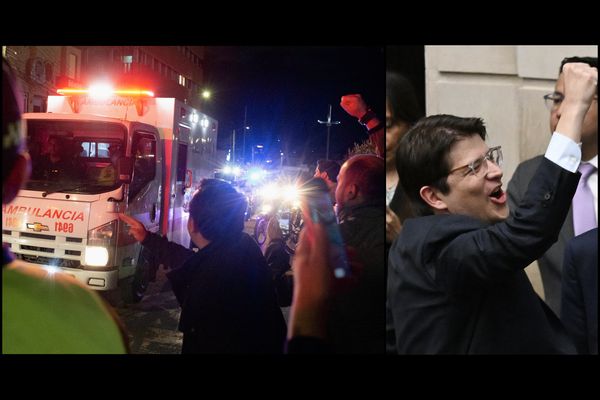
French leisure group Accor is to open two hotels in Iran, in one of the first moves by international operators into an expected tourism boom in the country following the deal over its nuclear programme.
Two of Accor’s best known chains – Ibis and Novotel – are to open next month at Tehran’s international airport, as Iran scrambles to improve its infrastructure ahead of what one tour operator described as a big onslaught of foreign tourists.
The hotels are the latest signs of rapprochement between Iran and the west following the nuclear agreement struck in Vienna earlier this summer, which has paved the way for European investments, even though sanctions are yet to be officially lifted. A large number of French firms, such as Total and Peugeot, are also expected to travel to Iran later this month.

“Our brands are looking at huge growth potential in this country, which is home to almost 80 million people and is expanding its economy,” said AccorHotels ’ chief executive, Sébastien Bazin, who was in Tehran to sign a management agreement with the Iranian company, Aria Ziggura.
“We are certain that Novotel and Ibis will fit perfectly into the growth momentum that Iran’s hospitality sector is enjoying.”
International hotel groups such as InterContinental, Hyatt and Hilton, were operating in Iran before 1979 but operations came to a halt after the revolution that ended the Shah’s rule and ushered in the Islamic republic, under Ayatollah Khomeini.
In more recent years, Iran’s tourism industry particularly suffered under the eight-year rule of the hardline former president, Mahmoud Ahmadinejad, as Iran became more internationally isolated over its nuclear programme.
Jonny Bealby, the founder of the UK-based tour operator Wild Frontiers, said it had to put on four extra tours this autumn alone to meet the increasing demands for Iran tours after the reopening of the British embassy in Tehran in August. The Foreign Office in London has also recently lifted its advice against travel to most parts of Iran.

“One of the biggest problems we’re going to have next year is whether the tourism infrastructure can survive under what would probably be quite a big onslaught of tourists,” Bealby said. “Any new hotels being opened is a good thing for tourism in Iran.”
Iran is host to many cultural treasures largely unknown in the west, including glittering mosques, spectacular landscapes and 19 ancient ruins listed as Unesco world heritage sites.
Attractions include Persepolis (the ancient capital of the largest empire that the world has ever seen), the city of Isfahan, and Shiraz (known as the city of love and poetry). Tehran itself is famous for having ski resorts on its doorstep.
Mina Mehdinia, organiser of the 2017 convention of the World Federation of Tourist Guide Associations – to be held in Tehran – said Iran hopes to attract as many as 20 million tourists per year in 2025. “Iran is trying to establish itself as a new tourist destination in the world and we would like to use this convention to introduce Iran to outsiders as a very safe country to visit. We hope our tourism will receive a significant boost,” she said.
Despite this, Iran’s tourist sector, service levels and hotels in particular, have not developed significantly since the 1980s, according to Bealby. “Our tourists understand and know that if they’re going to Iran, they know it’s been isolated for 30 years, and therefore they’re not expecting great quality service and wonderful hotels but I think in time hopefully this will start to change.”

He said the UK embassy reopening and lifting of the FCO advice against travel to Iran had encouraged more Britons to consider a holiday in Iran. “It makes people feel more safe about travelling but also things like insurance become much easier. Having an embassy there reassures travellers that the British are in place and that we are welcomed.”
Mehdi Jahangiri of Aria Ziggurat expressed hope that the partnership with Accor would upgrade local standards of hotels in the country.
There are challenges, however. Iran is still not fully integrated into international systems, and sanctions are still in place, meaning that Iran’s banking sector is cut off from the outside world, meaning western debit and credit cards would not work at ATM machines.







